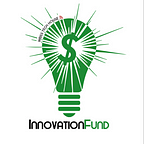Why Humans Suck at Science
And What Startups Are Doing About It
By: Spencer Weiss (Penn ‘20)
In my first month working at a professional lab, I dropped a tiny vial of liquid on the ground — to the tune of $500 of grant money whisking away in shattered glass. Luckily, that vial held only a small amount of easily replaceable chemicals. The rest of the lab was packed with machines costing tens of thousands of dollars each, and that is par for the course in biochemistry.
Biology is expensive. Server space is not.
Servers Versus Sequencers
With the advent of centralized server banks, you can design a website by yourself, pay Amazon Web Services, Google Cloud or Microsoft Azure to host it, and have a minimum viable product ready for customers without breaking the bank. That allows software startups to be nimble and to iterate their products quickly. And still, only a small percentage of web and mobile startups ever see profits or successfully exit.
For biotechnology startups, however, the path is not so simple. The costs of setting up a functioning laboratory make it remarkably more difficult for biotechnology startups to get off the ground than for software startups. To build a product, biotech startups likely need all of the expensive machines found in a professional lab (e.g. sequencers), and product iteration entails paying for all necessary materials over and over again. Worse, since it is unlikely that they can foot the bill for the required equipment, biotech startups likely need to work in industry labs or in academic labs to which they often must hand over intellectual property. This can be avoided by working on a product as a part of an independent PhD thesis, but once an individual graduates, incentives are strong for him or her to take a safe and comfortable job instead of jumping into the fray of entrepreneurship.
Though cheap server space has been available to software startups for years, the market for lab equipment has not been democratized to allow for independent use. However, a new crop of startups is emerging with the hope of changing the ecosystem of science into one that is more affordable and more open to independent research.
Laboratories in the Cloud
Transcriptic was founded in 2012 with the goal of becoming a central laboratory for scientific experiments to take place. Anyone can send samples to be processed and analyzed automatically for as little as ten dollars — and this opportunity has taken root in laboratories at top universities across the country. Other companies, like Emerald Cloud Lab, are also quickly joining the new science-as-a-service space. Harlem Biospace, a co-working space dedicated to biotechnology startups, is providing similar services on a more personalized level to early-stage ventures in New York City.
Business Model Innovation and its Impact on Science
Possibly even more important than the increased access to scientific processes that cloud labs provide, however, are follow-on benefits to science as a whole. Though often vital to operations, the expensive machines for which universities and pharmaceutical companies pay sit unused for the vast majority of their lifetimes, even when one is bought for the whole organization to share. Perhaps this is a sign that a sharing economy strategy — similar to those pioneered by Uber and Airbnb — would be beneficial.
In addition, it has long been recognized that the reproducibility of scientific experiments is far lower than the statistical ideal and that the incentives in the industry are misaligned for researchers to run verification experiments. Since cloud laboratory companies perform their experiments robotically from inside vacuum-sealed boxes, there is far less room for human error than in a traditional laboratory setting.
Together, these factors alleviate the scourge of the worst part of science — humans. Using a cloud lab, a researcher or entrepreneur is freed to become the architect of his or her experiment, a creative and analytical role that humans are innately good at. The same individual does not have to perform the experiment, thereby removing mistake-prone humans from a critical step in the process.
Research Renaissance
Startups are uniquely positioned to take advantage of this emerging field and join university labs as its primary customers. Such entrepreneurs require advanced laboratory techniques, but rarely have the funding to buy the required machinery and are most often unaffiliated with an organization that would own it in the first place. Thus, cloud laboratories could usher in a renaissance of the biotechnology startup field, allowing promising new products to come to market to address underserved swathes of the population. Just as most technology innovation used to occur in large hubs like Bell Labs and since moved to a diverse array of technology companies, the field of biotechnology can move from a pharmaceuticals-controlled landscape to a democratized one with low barriers to entry ripe for startups.
At the Weiss Tech House Innovation Fund, we are excited about these promising trends in biotechnology and have been lucky enough to fund multiple companies that have braved this landscape. BioCellection is creating an alternative way to break down plastics utilizing specialized strains of bacteria and chemical processes. Sanguis is developing microfluidic technology to make the diagnosis of diseases more modular and cost-effective. We hope that cloud laboratories make future research and development smoother for such companies, and that they allow more ideas in biotechnology to come to market. If you would like to chat about biotechnology or are a Penn founder starting a company in the space, please feel free to reach out to us!
Spencer is an Innovation Fund Project Manager and our team’s Director of Sourcing. He studies bioengineering and is interested in biosciences companies and cloud laboratory services. Spencer has previously published research on cancer immunotherapy through Georgetown University.
Weiss Tech House Innovation Fund is dedicated to funding, promoting, cultivating, and supporting student entrepreneurship in the UPenn community. Working on a startup? Interested in partnering? Want to get involved? Drop us a line at apply.innovationfund@gmail.com.
